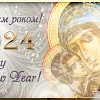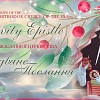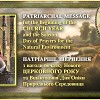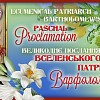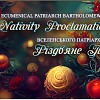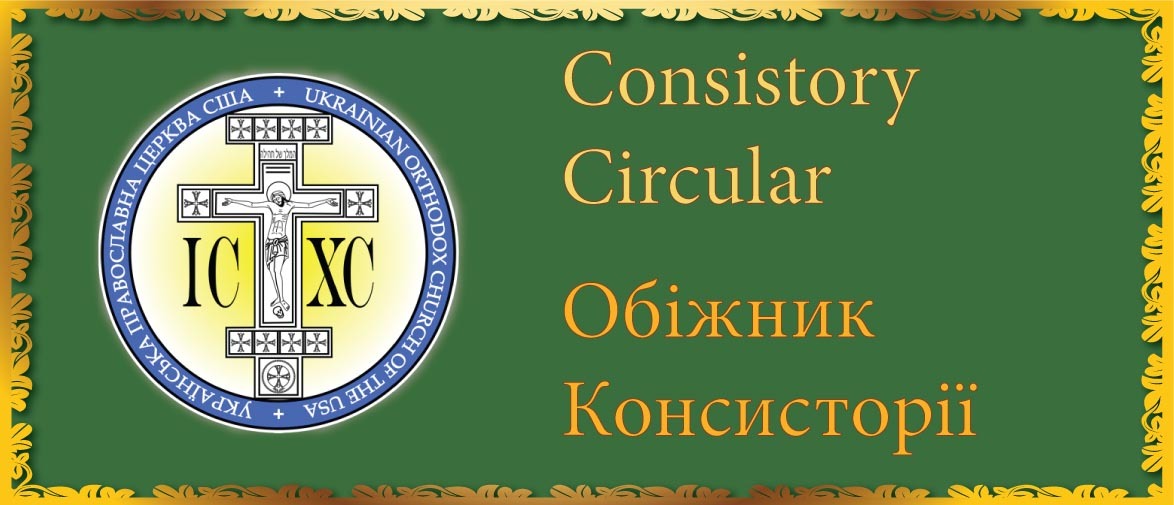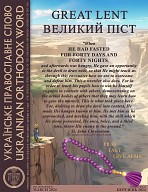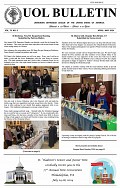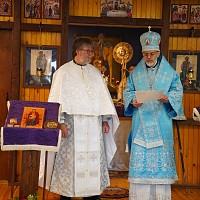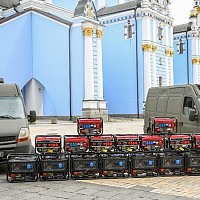+ B A R T H O L O M E W
By God’s Mercy, Archbishop of Constantinople-New Rome and Ecumenical Patriarch
to All the Plenitude of the Church
Grace, Mercy, and Peace from the Saviour Christ Born in Bethlehem
Most honorable brother hierarchs,
Beloved children in the Lord,
With the grace of God, we are once again this year celebrating in chant, hymn, and spiritual song the Nativity according to the flesh of the pre-eternal Son and Word of God, namely the manifestation of the mystery of God and humankind. According to St. Nicholas Cabasilas, what occurs in the Divine Liturgy is “the mystagogy of the Lord’s incarnation,” while its introductory acclamation “Blessed is the Kingdom of the Father, Son, and Holy Spirit” is evidence “that it is through the Lord’s incarnation that people first learned that God is three persons.”[1] The same saintly Father proclaims that our Lord and Savior Jesus Christ was the first and only to demonstrate the authentic and perfect human being, concerning His ethos, life, and everything else.”[2]
The assumption of human nature in the person of the Son and Word of God, along with the opening of the way of human deification through grace, add unsurpassable value to humankind. Forgetting this truth leads to the diminishment of respect for the human person. The denial of the supreme destiny of human beings does not only liberate them, but also leads to diverse reductions and divisions. Without being conscious of their divine origin and their hope for eternity, humans struggle to remain human and are unable to handle the contradictions of the “human condition.”
The Christian perception of human existence provides a solution to problems created by violence, war, and injustice in our world. Respect for the human person, peace, and justice are gifts from God; however, establishing the peace that comes from Christ demands the participation and cooperation of human beings. The Christian view on the struggle for peace lies in the words of Christ our Savior, who proclaims peace, addressing His disciples with the greeting “Peace be with you” and encouraging us to love our enemies.[3] The revelation in Christ is called the “gospel of peace.”[4]
This means that, for us Christians, the way to peace is through peace and that non-violence, dialogue, love, forgiveness, and reconciliation have priority before other forms of resolving differences. The theology of peace is clearly described in the Ecumenical Patriarchate’s document For the Life of the World: Toward a Social Ethos of the Orthodox Church (2020):
“Nothing is more contrary to God’s will for His creatures fashioned in His image and likeness than violence one against another . . . We may justly say that violence is sin par excellence. It is the perfect contradiction of our created nature and our supernatural vocation to seek union in love with God and our neighbour. . . Peace is a real revelation of the still deeper reality of creation as God intends it and as God fashioned it in his eternal counsels.”[5]
Peace cannot be taken for granted; it is not self-evident. It is an obligation, an achievement, and an incessant struggle to preserve it. There are no automatic solutions or permanent recipes. In the face of ongoing threats to peace, we need to have vigilance and willingness to resolve problems through dialogue. The great heroes of politics are the champions of peace. As for us, we continue to underline the peacemaking role of religion. This is during a time when religions are criticized for nurturing fanaticism and violence “in the name of God” instead of being forces of peace, solidarity, and reconciliation. However, this indicates an alienation of religious faith and not an integral part of it. Genuine faith in God is the harshest critic of religious fanaticism. Religions are the natural allies of all human beings who strive for peace, justice, and the preservation of creation from human destruction.
This year, the world honours the 75th anniversary of the Universal Declaration of Human Rights (December 10, 1948), constituting a summary of fundamental humanitarian ideals and values, “the shared standard, to which all peoples and all nations should aim.” Human rights, whose central point of focus includes the protection of human dignity with its individual, social, cultural, economic, and ecological conditions, are only understood in their original dynamics if they are acknowledged as the basis and criterion of global peace, associating it with freedom and justice. In this sense, the future of human rights and peace is also linked to the contribution of religions in the matter of respecting them and making them a reality.
With these thoughts and festive sentiments, in full conviction that the life of the Church in itself comprises resistance against inhumanity, wherever such inhumanity arises, we invite all of you to the good fight of constructing a culture of peace and solidarity, where people will see in the face of their fellow human beings a brother or sister and a friend, rather than a threat and enemy. Moreover, we remind you all, dear brother Hierarchs and children, that Christmas is a time of self-consciousness and thanksgiving, of the revelation of the difference between the God-man and “man-god,” of the realization of the “great miracle” of freedom in Christ and of the healing of the “great wound” of alienation from God. Finally, we kneel respectfully before Mary, the Mother of God, who bears in her arms the incarnate Word, and we convey to you the blessing of the Mother Holy Great Church of Christ, wishing you an auspicious, healthy, fruitful, peaceful, and joyous new year of the Lord’s favour.
Christmas 2023
+ Bartholomew of Constantinople
Your fervent supplicant of all before God
++++++++++++++++++++++++++++++
[1] On the Divine Liturgy XII, PG 150.392D.
[2] On the Life of Christ VI, PG 150.680C.
[3] Cf. Mt. 5:44
[4] Eph. 6:44
[5] § 42, 43 and 44.
+Варфоломій
Милосердям Божим, Архієпископ Константинополя-Нового Риму
і Вселенський Патріарх до всієї повноти Церкви
Благодать, Милість та Мир від Спасителя Христа, народженого в Вифлеємі
Всечесніші брати-ієрархи,
Возлюблені в Господі діти,
З Божої ласки ми знову в цьому році святкуємо співом, гімном і духовною піснею Різдво по плоті предвічного Сина і Слова Божого, а саме об’явлення таємниці Бога і людства. Згідно св. Миколая Кавасили, те, що відбувається в Божественній Літургії, є «містагогією втілення Господа», а її вступний виголос «Благословенне Царство Отця, і Сина, і Святого Духа» є свідченням того, “що саме через воплочення Господнє люди вперше дізналися, що Бог в трьох особах”. “Той же Святіший Отець проголошує, що наш Господь і Спаситель Ісус Христос був першим і єдиним, хто продемонстрував справжню і досконалу людську істоту, що стосується Його етосу, життя і всього іншого”.
Прийняття людської природи в особі Сина і Слова Божого разом із відкриттям шляху обожнення людини через благодать додають людству неперевершену цінність. Забуття цієї істини призводить до зменшення поваги до людської особи. Заперечення найвищого призначення людини не тільки не звільняє її, але й призводить до різноманітних зменшень і розділень. Без усвідомлення свого божественного походження і надії на вічність людина намагається залишатися людиною і не здатна впоратися з протиріччями “людського стану”.
Християнське сприйняття людського існування дає розв’язання проблем, створених насильством, війною та несправедливістю в нашому світі. Повага до людської особистості, мир і справедливість – це дари від Бога, однак встановлення миру, який походить від Христа, вимагає участі та співпраці людей. Християнський погляд на боротьбу за мир полягає у словах Христа Спасителя, який проголошує мир, звертаючись до Своїх учнів із привітанням «Мир вам» і заохочуючи нас любити ворогів. Одкровення у Христі називається «Євангелієм миру».
Це означає, що для нас, християн, шлях до миру лежить через мир і що ненасильство, діалог, любов, прощення та примирення мають пріоритет перед іншими формами вирішення розбіжностей. Теологія миру чітко описана в документі Вселенського Патріархату Заради життя світу: до соціального етосу Православної Церкви (2020):
«Ніщо так не суперечить волі Бога щодо Його створінь, створених за Його образом і подобою, як насильство одне над одним… Ми можемо просто сказати, що насильство є гріхом par excellence (найгіршим з можливих, – прим., ред.). Це досконала суперечність нашої створеної природи та нашого надприродного покликання шукати єдності в любові з Богом і нашим ближнім… Мир є справжнім одкровенням ще глибшої реальності творіння, як це задумано Богом і як Бог створив його у Своїх вічних задумах».
Мир не можна сприймати як даність, він не є самоочевидним. Це обов’язок, досягнення і безперервна боротьба за його збереження. Не існує автоматичних рішень чи постійних рецептів. Перед обличчям постійних загроз миру ми повинні бути пильними і готовими вирішувати проблеми шляхом діалогу. Великі герої політики – це поборники миру. Що стосується нас, то ми продовжуємо підкреслювати миротворчу роль релігії. І це в той час, коли релігії критикують за те, що вони плекають фанатизм і насильство “в ім’я Бога” замість того, щоб бути силою миру, солідарності та примирення. Однак це свідчить про відчуження релігійної віри, а не про те, що вона є її невід’ємною частиною. Справжня віра в Бога є найсуворішим критиком релігійного фанатизму. Релігії є природними союзниками всіх людей, які прагнуть миру, справедливості та збереження творіння від людського знищення.
Цього року світ вшановує 75-ту річницю Загальної декларації прав людини (10 грудня 1948 р.), яка є підсумком фундаментальних гуманітарних ідеалів і цінностей, «спільного стандарту, до якого повинні прагнути всі люди і всі нації». Права людини, центром уваги яких є захист людської гідності з її індивідуальними, соціальними, культурними, економічними та екологічними умовами, розуміються лише в їхній початковій динаміці, якщо вони визнаються основою та критерієм глобального миру, асоціюючи його зі свободою і справедливістю. У цьому сенсі майбутнє прав людини та миру також пов’язане з внеском релігій у справу їх поваги та втілення в життя.
З цими думками та святковими настроями, у повному переконанні, що життя Церкви саме по собі включає в себе опір проти нелюдськості, де б вона не виникала, ми запрошуємо всіх вас до доброї боротьби за побудову культури миру та солідарності, де люди будуть бачити в особі своїх ближніх брата чи сестру та друга, а не загрозу та ворога. Крім того, нагадуємо вам усім, дорогі брати-єрархи та діти, що Різдво – це час самоусвідомлення та подяки, об’явлення різниці між Боголюдиною та “людиною-богом”, здійснення “великого чуда” свободи у Христі та зцілення “великої рани” відчуженості від Бога. Насамкінець, ми шанобливо схиляємо коліна перед Марією, Матір’ю Божою, яка носить на руках воплочене Слово, і передаємо вам благословення Матері Святої Великої Христової Церкви, бажаючи вам сприятливого, здорового, плідного, мирного і радісного нового року Господньої прихильності.
Різдво 2023
+ Варфоломій Константинопольський
Ваш ревний прохач усіх перед Богом.
|
| |||||||||||||


